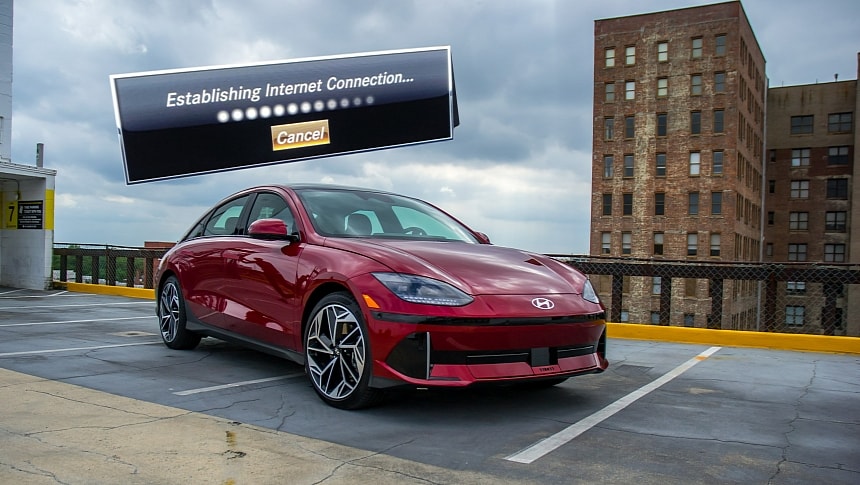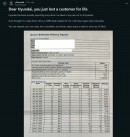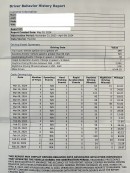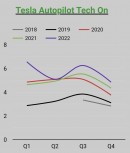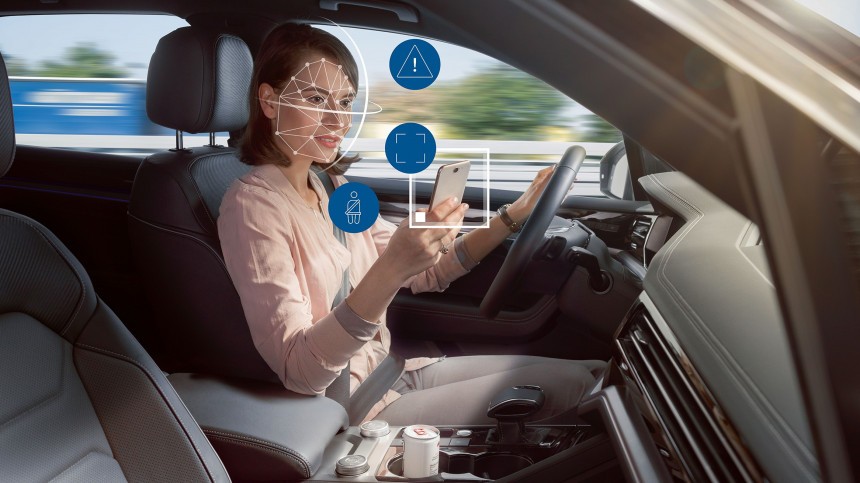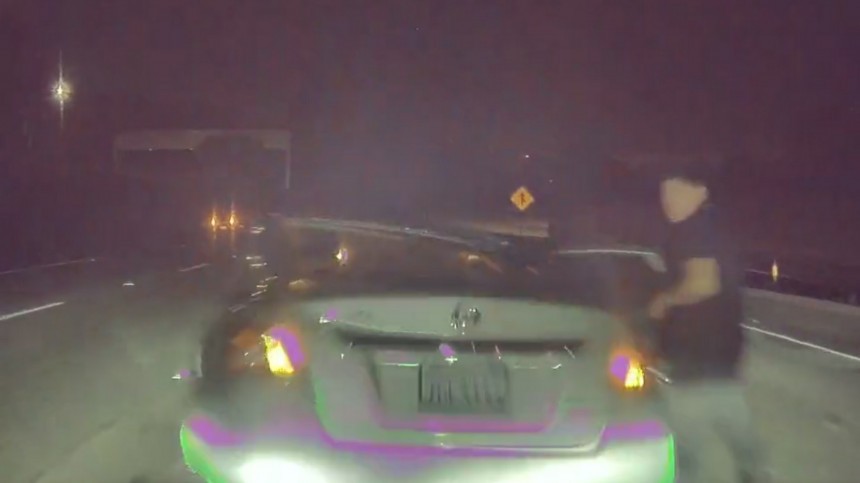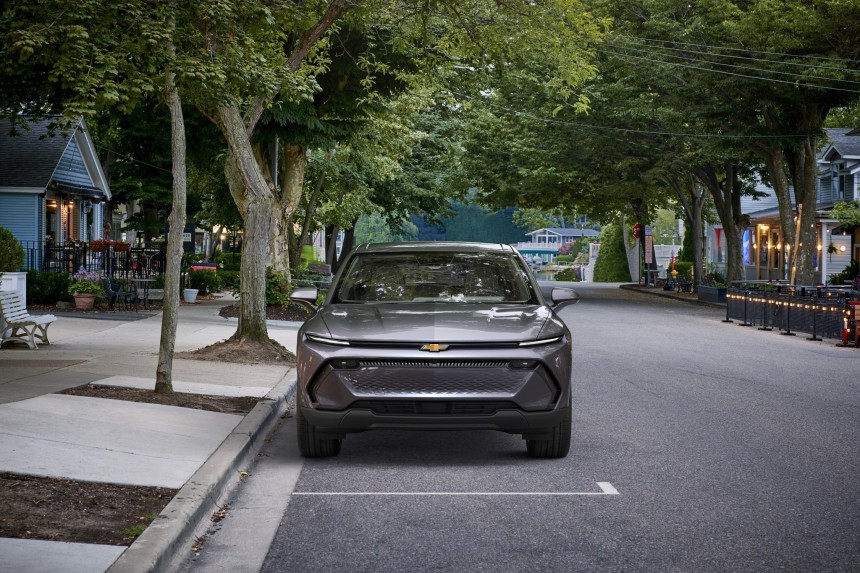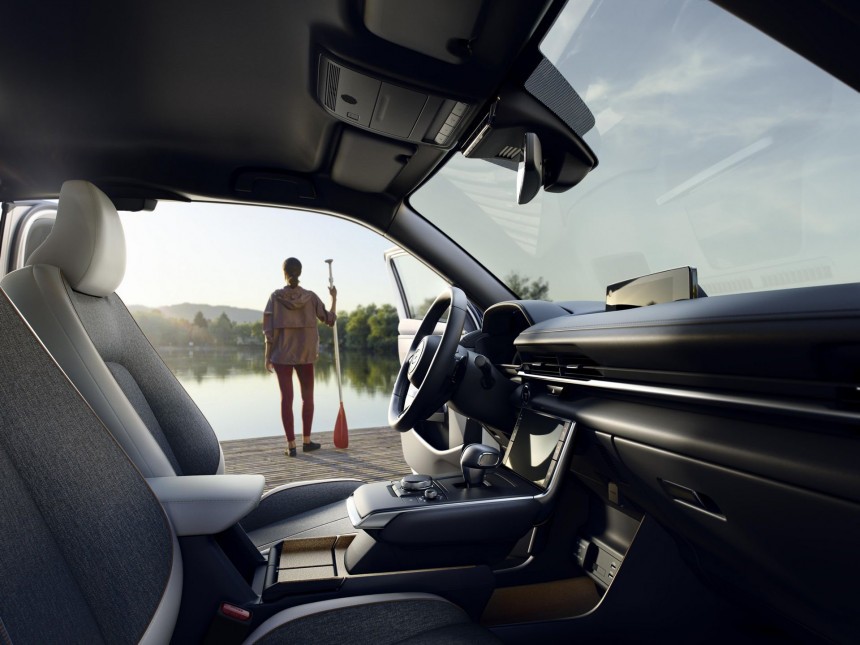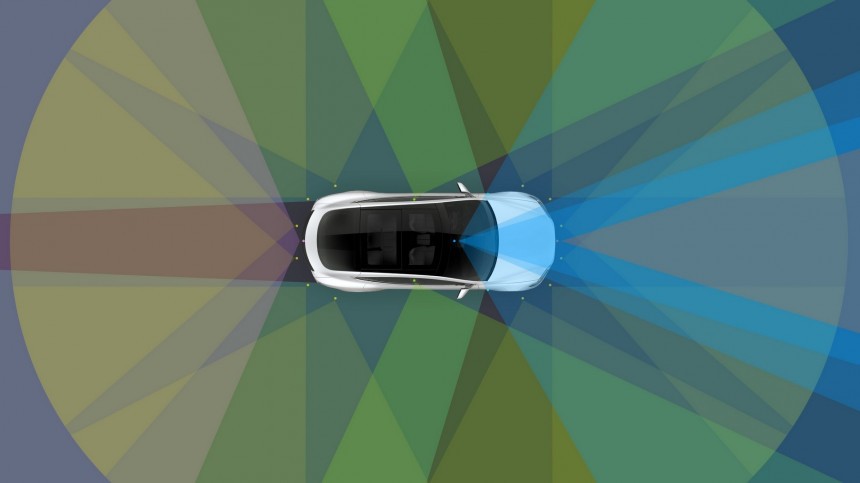We are living in a very connected world, and our privacy has been suffering the most because of it. What's even worse is that some companies try very hard to hide that they're tracking our every move or make it incredibly inconvenient to stop them from collecting all sorts of details about us. Most modern cars, sadly, are no different. Here's what this Hyundai owner discovered and what you should do to limit the reach of these pesky and intrusive commercial entities.
Three years ago, Hyundai introduced a driving score for its customers who agreed to have their driving habits tracked. The program was completely optional and was supposed to help buyers obtain cheaper insurance.
That was only going to be possible by giving third parties access to a multitude of data points. Coverage providers would obtain certain details such as average speed, how often the customer was driving, how many miles they covered in a certain time period, and if they were accelerating spiritedly or braking too hard.
However, multiple Hyundai owners discovered that they weren't getting a weekly Bluelink score. Others complained that the criteria were too restrictive. It didn't really work right for everyone.
The most surprising aspect of this piece of tech was that people who chose not to participate in the tracking program discovered that their cars were still accessing the onboard telematics and sending data to Hyundai's partner, Verisk. Moreover, they said that for some time, the automaker's dedicated page where you could opt out of having your personal data sold to third parties didn't work.
The Hyundai owner is convinced that their car "has been secretly reporting" their every drive to third parties against their wishes. The customer asked Verisk to show what data the company has collected about their driving behavior, and the report is surprisingly detailed.
In a response sent via the US Postal Service, Verisk confirmed that it knew exactly how many times the driver turned on and off their car, how many trips he took every time the vehicles was turned on, how often he braked hard (interpreted as the speed reducing at a rate of 5.9 mph or more per second), how often he accelerated rapidly (which is cataloged as an increase in speed of 5.9 mph or more per second), how many minutes he drove at night or during the day, and the mileage.
The customer says that he won't buy a Hyundai ever again after discovering what the car was telling others about him.
Still, it's important to note that the South Korean automaker stopped sending Verisk such detailed information on April 9. At the same time, Verisk stopped supplying insurance companies with these reports.
Other Hyundai owners disagreed with the dissatisfied customer and pointed out that he should have known about Bluelink, Verisk, and the possibility of paying more for insurance because of sneaky data collection. While we can't say that the forum participants weren't right in blaming the owner for not making the right choices, we find it a bit pretentious to demand technical proficiency from everyone.
There are people out there who don't know how to use social media but are great drivers. Should they be punished for not understanding all the privacy-related terms and legal jargon? We don't think so. But let's continue and see what has happened before this owner discovered that Hyundai was a telltale.
Last month, we reported about a Florida-based General Motors customer who sued the auto behemoth, OnStar, and LexisNexis because he discovered that his insurance rate doubled because the provider received detailed data about his driving behavior.
The disgruntled buyer asked for a jury, demanded putative (alleged but not proven) damages, and wanted to stop this practice altogether. Most recently, the jury trial was set to start on November 18, but the judge forced the parties involved in the lawsuit to go to mediation. Still, the plaintiff pushed forward with starting a class action lawsuit. It's not yet clear what will come of this.
However, we must point out that data collection isn't something new. Connected vehicles can use their onboard telematics and the built-in internet connection to send all sorts of details about the car or the driver to the automaker. Then, the auto company decides what to do with that data.
Two years ago, we reported about Mazda's intriguing privacy policy, which stated in black and white that disabling data collection could only happen in an authorized shop and only if the brand approved the owner's request beforehand. So, the customer would have to find the policy, read it, understand it, and opt out! Normally, you'd expect a car company like Mazda to give buyers the option to choose!
Rivian, a promising startup that wants to follow in Tesla's footsteps, is a good example in this regard. It incentivized customers to use its advanced driver-assistance system, Driver+, as much as possible on highways. Those who did and also agreed to send the brand a ton of data were promised lower insurance premiums. This was done in partnership with Nationwide. That's how you do it!
In the Japanese automaker's defense, it made it clear that everything it collected about the car and the driver's behavior was processed as anonymous data sets. So, theoretically, it would have been impossible to pull a Hyundai- or GM-like move.
Last year, we learned that Tesla, Nissan, Hyundai, Cadillac, Chevy, Kia, Honda, Acura, Mercedes-Benz, Ford, Lexus, and VW were the worst at handling sensitive customer data.
Nissan, for example, said in its privacy statement that it could collect highly confidential information about drivers, such as their intimate encounters, genetic information, and health data. The last two were probably made available through wired or wireless phone connections. Many of us use mobile devices for fitness purposes, and that info could easily be collected by the car once the phone was paired with the vehicle.
That's not all, though. Nissan (and others like GM or Honda) also said that it would collect and possibly sell the driver's shopping preferences, behavior details, intelligence level (what?), and predispositions to certain addictions.
Honda and Acura were also pretty creepy with their data collection. Their cars could collect social security numbers, details about the driver's education, employment history, and financial and medical information.
Surprisingly, all but Tesla agreed to protect buyers' data through an agreement known as the Consumer Protection Principles. None, however, have respected concepts such as transparency, giving the customer a choice, and minimizing data collection.
Ultimately, until the US adopts a comprehensive data protection procedure like the European Union did (which should include hefty fines for not adhering to it completely), it's up to every car owner to read their ride's privacy policy, find all the opt-out methods, and ask the automaker to confirm that their driving behavior (and other details) aren't being collected against their will.
If you're not planning to buy a brand-new car, the simplest solution is to avoid vehicles equipped with a 4G communication module. Those with 3G connectivity are safe because that type of mobile connection has been sunsetted in the US. Also, don't connect it to a WiFi network. You never know what your car might want to tell someone else about you.
That was only going to be possible by giving third parties access to a multitude of data points. Coverage providers would obtain certain details such as average speed, how often the customer was driving, how many miles they covered in a certain time period, and if they were accelerating spiritedly or braking too hard.
However, multiple Hyundai owners discovered that they weren't getting a weekly Bluelink score. Others complained that the criteria were too restrictive. It didn't really work right for everyone.
Not everyone is willing to simply accept this practice
Now, a Hyundai owner who bought a new ride and was concerned about how their data was handled discovered that their car sent out a bunch of details about their driving behavior. He claims on Reddit that Bluelink wasn't activated, and underlines that he didn't see anything about opting in or out of such a comprehensive tracking policy.The Hyundai owner is convinced that their car "has been secretly reporting" their every drive to third parties against their wishes. The customer asked Verisk to show what data the company has collected about their driving behavior, and the report is surprisingly detailed.
In a response sent via the US Postal Service, Verisk confirmed that it knew exactly how many times the driver turned on and off their car, how many trips he took every time the vehicles was turned on, how often he braked hard (interpreted as the speed reducing at a rate of 5.9 mph or more per second), how often he accelerated rapidly (which is cataloged as an increase in speed of 5.9 mph or more per second), how many minutes he drove at night or during the day, and the mileage.
The customer says that he won't buy a Hyundai ever again after discovering what the car was telling others about him.
Other Hyundai owners disagreed with the dissatisfied customer and pointed out that he should have known about Bluelink, Verisk, and the possibility of paying more for insurance because of sneaky data collection. While we can't say that the forum participants weren't right in blaming the owner for not making the right choices, we find it a bit pretentious to demand technical proficiency from everyone.
There are people out there who don't know how to use social media but are great drivers. Should they be punished for not understanding all the privacy-related terms and legal jargon? We don't think so. But let's continue and see what has happened before this owner discovered that Hyundai was a telltale.
It has happened before
So, here's the thing that matters more than one person giving up on a brand: this isn't one isolated incident.The disgruntled buyer asked for a jury, demanded putative (alleged but not proven) damages, and wanted to stop this practice altogether. Most recently, the jury trial was set to start on November 18, but the judge forced the parties involved in the lawsuit to go to mediation. Still, the plaintiff pushed forward with starting a class action lawsuit. It's not yet clear what will come of this.
However, we must point out that data collection isn't something new. Connected vehicles can use their onboard telematics and the built-in internet connection to send all sorts of details about the car or the driver to the automaker. Then, the auto company decides what to do with that data.
Two years ago, we reported about Mazda's intriguing privacy policy, which stated in black and white that disabling data collection could only happen in an authorized shop and only if the brand approved the owner's request beforehand. So, the customer would have to find the policy, read it, understand it, and opt out! Normally, you'd expect a car company like Mazda to give buyers the option to choose!
In the Japanese automaker's defense, it made it clear that everything it collected about the car and the driver's behavior was processed as anonymous data sets. So, theoretically, it would have been impossible to pull a Hyundai- or GM-like move.
Our data, their playground
But it gets (a lot) worse.Last year, we learned that Tesla, Nissan, Hyundai, Cadillac, Chevy, Kia, Honda, Acura, Mercedes-Benz, Ford, Lexus, and VW were the worst at handling sensitive customer data.
Nissan, for example, said in its privacy statement that it could collect highly confidential information about drivers, such as their intimate encounters, genetic information, and health data. The last two were probably made available through wired or wireless phone connections. Many of us use mobile devices for fitness purposes, and that info could easily be collected by the car once the phone was paired with the vehicle.
Honda and Acura were also pretty creepy with their data collection. Their cars could collect social security numbers, details about the driver's education, employment history, and financial and medical information.
Surprisingly, all but Tesla agreed to protect buyers' data through an agreement known as the Consumer Protection Principles. None, however, have respected concepts such as transparency, giving the customer a choice, and minimizing data collection.
Ultimately, until the US adopts a comprehensive data protection procedure like the European Union did (which should include hefty fines for not adhering to it completely), it's up to every car owner to read their ride's privacy policy, find all the opt-out methods, and ask the automaker to confirm that their driving behavior (and other details) aren't being collected against their will.
If you're not planning to buy a brand-new car, the simplest solution is to avoid vehicles equipped with a 4G communication module. Those with 3G connectivity are safe because that type of mobile connection has been sunsetted in the US. Also, don't connect it to a WiFi network. You never know what your car might want to tell someone else about you.
